2-Day-Anxiety Certification Course – Janene M. Donarski
Original price was: $299.99.$88.00Current price is: $88.00.
2-Day-Anxiety Certification Course – Janene M. Donarski Download. Advances in neuroscience have provided a roadmap for the brain that shows us the key to w…
Salepage link: At HERE. Archive:
Advances in neuroscience have provided a roadmap for the brain that shows us the key to working with anxious minds. But knowing how to interpret the complex map neuroscience provides has left many clinicians wondering … How do I unlock the complicated inner works of the brain to guide my client sessions?
In this new, comprehensive certification training program recording, you’ll see how neuroscience can inform why, how and what techniques can help your clients stop the symptoms of anxiety – even tough to treat panic attacks, worry, rumination, nausea, and pounding hearts.
Now you can watch Janene Donarski, Ph.D., LP, LMSW, CCATP, for a comprehensive step-by-step clinical training on how you can revolutionize your anxiety treatment approach with the power of neuroplasticity.
More than just the neurobiological “whats and whys”, you’ll also learn the “hows” of actual treatment – so you’ll know exactly how to empower your clients with strategies to resist anxiety-igniting cognitions.
You’ll leave this program recording confident in your ability and be fully prepared to integrate brain-based strategies that motivate lasting change for calming the mind – even in your most anxious, worried, or obsessive clients.
- Ascertain the underlying neurological processes that impact anxious symptoms for clients.
- Teach clients the neurological processes underlying anxiety in a clearly understandable manner that enhances client motivation.
- Develop client engagement in treatment using personalized goals and attending to the therapeutic relationship.
- Incorporate personalized goals to increase client engagement and focus client efforts on making lasting changes in the brain.
- Evaluate the differences between amygdala-based and cortex-based anxiety symptoms and identify how these symptoms inform treatment interventions.
- Communicate strategies for calming and training the amygdala to alleviate symptoms of anxiety.
- Implement methods for teaching clients to retrain the cortex so that anxiety is resisted rather than exacerbated.
- Select appropriate treatment interventions by determining whether the client is experiencing rebound anxiety or relapse symptoms.
- Analyze how psychotropic medication impacts neuroplasticity in the brain; identify related treatment implications.
- Reframe exposure as an opportunity to teach the amygdala new responses to improve client engagement and treatment compliance.
- Present client education exercises that can be utilized in session to train clients in the use of mindfulness techniques.
- Provide clinical strategies for managing comorbid depression that reduce worry, rumination, and common cognitive errors while promoting positive thinking and social interaction.
Using Neuroscience in the Treatment of Anxiety
- Positives:
- Causes and treatments known
- Can explain the neurological symptoms
- Science provides evidence, authority
- De-stigmatizes disorders
- Clinician concerns:
- You don’t have to be a neuroscientist
- Oversimplification is inevitable
- Finding the right level of explanation is essential
Enhancing Engagement in Treatment
- Don’t neglect the therapeutic relationship
- Focus on personalized goals
- Address the challenges of anxious clients
- Remember that strategies are effortful
- Guide the process using client’s goals
- Maintain motivation
Neuroplasticity
- Defined in everyday language
- Neurologically informed therapy goal
- ”Change the brain” in desired ways
- Make the brain more resistant to anxiety
- Create a new self
- Re-consolidation: The modification of emotional memories
Neuropsychologically Informed CBT
- Strategies can be used to effectively “rewire” the brain
- Long history of evidence supporting efficacy
- Skills-based approach
- Strong focus on the present
- Psychoeducation is essential
Identify the Two Neural Pathways to Anxiety
- Amygdala – bottom-up triggering of emotion, physicality of anxiety
- Cortex – top-down emotion generation based in cognition
- How to explain the pathways to clients
- How anxiety is initiated in each pathway
- The pathways influence each other
Client Friendly Explanations
- Use illustrations to create concrete understanding
- Fight/flight/freeze responses
- The “language of the amygdala”
- Anxiety and the cortex
- Help clients recognize the two pathways
Neuroplasticity in the Amygdala Essential for all Anxiety Disorders, PTSD, OCD, Depression
- Sleep and the amygdala
- The influence of exercise
- Breathing techniques to reduce activation
- Relaxation, meditation, and yoga to modify responses
- Exposure as opportunities for the amygdala to learn
- Combating avoidance
- Indications that the amygdala can learn new responses
- Push through anxiety to change the amygdala
Neuroplasticity in the Cortex Essential for GAD, SAD, OCD, PTSD, Depression
- ”Survival of the busiest” principle
- Strengthen or weaken specific circuitry
- The healthy (adaptive) use of worry in the cortex
- ”You can’t erase: You must replace”
- Recognize and modify the impact of uncertainty
- Training correct uses of distraction
- Left hemisphere techniques
- Cognitive defusion
- Coping thoughts
- Fighting anticipation
- Right hemisphere techniques
- Imagery
- Music
- Mindfulness and anxiety resistances
Neuroplasticity and Medications for Anxiety Disorders, OCD, PTSD, Depression
- Medication’s effects in the rewiring process
- The myth of the chemical imbalance
- The danger of sedating the brain with benzodiazepines
- Promote neuroplasticity with SSRIs, SNRIs
- The effectiveness of CBT and meds
Moving Beyond Diagnostic Categories to Focus on Anxiety Pathways
- Address anxiety as a component of many diagnoses
- Depression, substance abuse, etc.
- Amygdala and cortex-based techniques that can help in other disorders
- Target brain-based symptoms rather than disorders
- Worry, obsessions, rumination respond to similar cortex-based techniques
- Panic, phobic responses, compulsions respond to amygdala-based techniques
Research, Risks and Limitations
Here's an overview of the prominent keywords and a list of famous authors:
Business and Sales: Explore business strategies, sales skills, entrepreneurship, and brand-building from authors like Joe Wicks, Jillian Michaels, and Tony Horton.
Sports and Fitness: Enhance athleticism, improve health and fitness with guidance from experts like Shaun T, Kayla Itsines, and Yoga with Adriene.
Personal Development: Develop communication skills, time management, creative thinking, and enhance self-awareness from authors like Gretchen Rubin, Simon Sinek, and Marie Kondo.
Technology and Coding: Learn about artificial intelligence, data analytics, programming, and blockchain technology from thought leaders like Neil deGrasse Tyson, Amy Cuddy, and Malcolm Gladwell.
Lifestyle and Wellness: Discover courses on holistic health, yoga, and healthy living from authors like Elizabeth Gilbert, Bill Nye, and Tracy Anderson.
Art and Creativity: Explore the world of art, creativity, and painting with guidance from renowned artists like Bob Ross and others.
All the courses on WSOlib are led by top authors and experts in their respective fields. Rest assured that the knowledge and skills you acquire are reliable and highly applicable.
Specification: 2-Day-Anxiety Certification Course – Janene M. Donarski
|
User Reviews
Only logged in customers who have purchased this product may leave a review.

Original price was: $299.99.$88.00Current price is: $88.00.

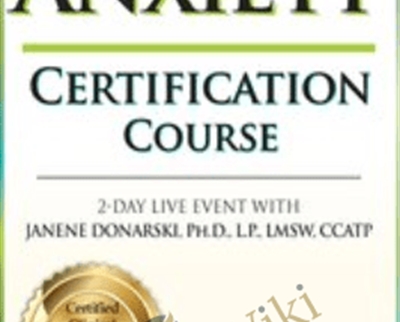

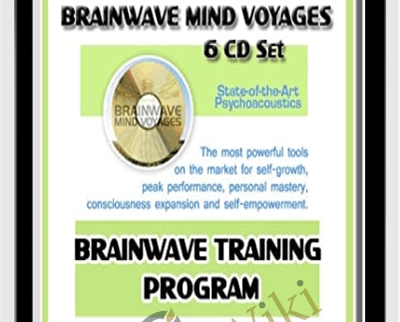


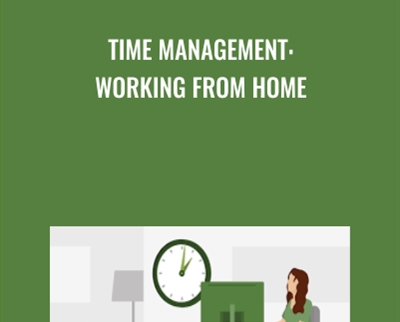
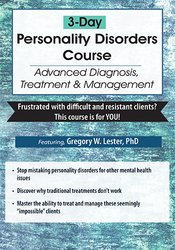
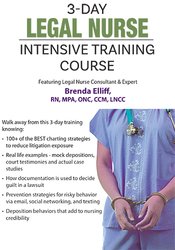
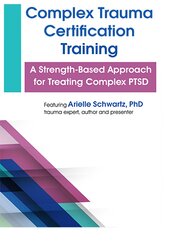
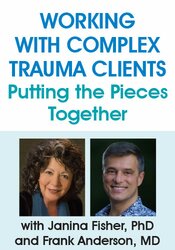
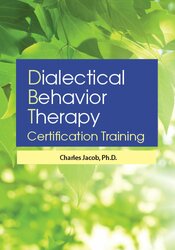
There are no reviews yet.